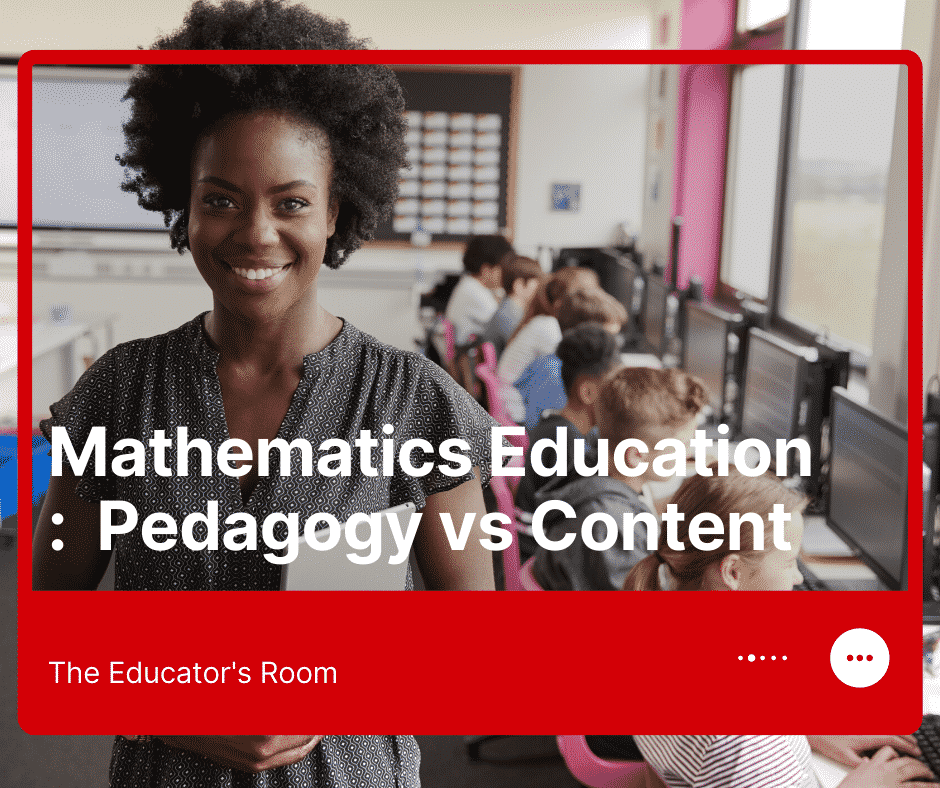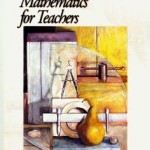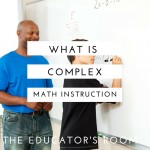The issue of which is more important: mathematical content knowledge or knowledge of educational pedagogy has been swirling around for some time. At the time that No Child Left Behind was instituted we heard political leaders voice the belief that anyone can teach. This mindset led to the belief that mathematical knowledge was far more important than pedagogy. For me the question is always – What is best for the students?
Let me disclose that I became a certified 7-12 mathematics teacher about 12 years into my teaching career. I held certifications in elementary education and as reading specialist, and found myself teaching mathematics to 7th and 8th graders. At that time, my K-8 certification allowed me to do this but I wanted to be better able to prepare my students for high school so I attended every mathematics workshop and program that was offered to me. This finally led me to go back to school and obtain my secondary mathematics certificate. My experience in evolving into a mathematics teacher is what I base the rest of this discussion on.
Having worked with teachers who held degrees in mathematics, as well as those who had degrees in education with mathematics certification, I have come to the following conclusions:
1. There is no question that every mathematics teacher must be strong in the individual math courses that he or she teaches. As in any other subject we must know more than our students.
2. If you are teaching higher level math (Calculus for example) or AP courses a degree in mathematics might be more beneficial than your knowledge of pedagogy.
3. Teachers with degrees in mathematics who teach often want to teach only the higher level math classes with the brightest students. Who then is left to teach the average math student?
4. Teaching does not pay well, so many who hold degrees in mathematics will never earn as much teaching as they could in the private sector. Often, those with a strong math background leave teaching for more lucrative positions. This often leaves schools with a large number of inexperienced teachers in math classrooms.
5. Without pedagogical knowledge it is very difficult to explain mathematical concepts to the average math student or one who does not understand the purpose of learning mathematical concepts they believe they will never need in the real world.
In my opinion, both mathematics content and pedagogy are needed to be a good math teacher, but I would tip the scale just slightly toward pedagogy if you are teaching students with poor math skills or those who will not use higher level math in their future careers. Professors of mathematics education would most likely say it is more important to have a teacher who can use pedagogy to explain math concepts than to have one who has a degree in mathematics. If you interview students in mathematics classes you will be told by the students that they want a math teacher who can clearly explain the concepts to them. Because my bottom line is always the students, I will leave you to ponder where you yourself stand.







Hi,
You have mentioned that without pedagogy, even those who are strong on their content can not explain a concept efficiently. In your years of teaching, what do you think is the best way to develop content pedagogy? Furthermore, what would you recommend for new teachers to try and implement so that their explanation can be more clear?
The math pedagogy has more to do with alternate presentations. For example- Many math teachers that I’ve done trainings for ask the question – Why can’t the students just learn the formula and solve the problems. I remind them that not all brains function exactly the same way. Many students need hands on representations before they can transition to traditional solutions.
One example that I can give you is for area of shapes like squares and triangles. Using pattern blocks students can make the transition from the area of the square to a triangle by placing two triangles on top of the square. This makes it easier for them to see why a triangle is half the area of a square. Understanding why helps remember how something works.
Hope this helps!